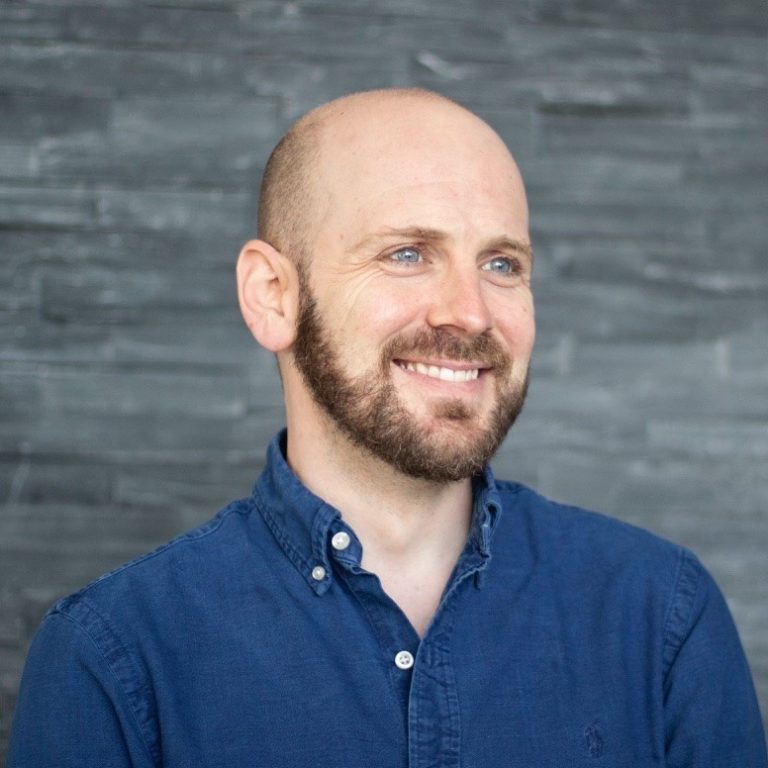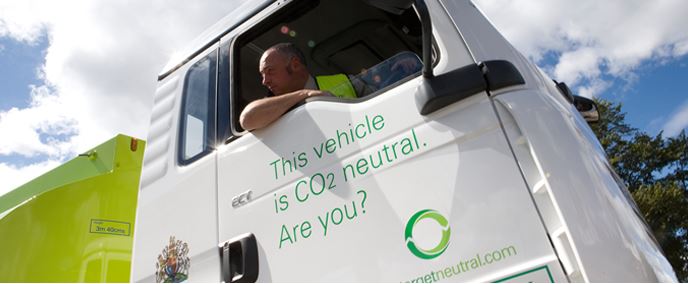bp: “We want people to be proud to work here”
The energy giant’s chief talent officer shares how bp’s business transformation towards net zero impacted its workforce.
Why You Should Care
Energy giant bp wants to transform its business (and its reputation).
It is transitioning away from being an oil company and wants to be net zero by 2050.
Chief talent officer Ben Gaunt shares the impact this move has had on bp's workforce. How is it being impacted by the 'Great Resignation'?
Energy giant bp has been under pressure for decades to clean up its act, and play its part in tackling climate change. The 2010 Deepwater Horizon oil spill in the Gulf of Mexico and its disastrous ecological impact was a very visual representation of the damage bp and its oil and gas giant competitors has wreaked on our environment.
With his appointment as new CEO in February 2020, Bernard Looney got to work triggering a new era for bp where it would become a climate-conscious company.
This meant when the COVID-19 pandemic hit the UK in March 2020, bp was in the early stages of a business reinvention. As a result, bp would transition away from being an international oil company and become an integrated energy company.
Ben Gaunt, chief talent officer at bp, tells UNLEASH that the motivation was “our belief that it is not simply enough to provide energy that is reliable and affordable – it must also be cleaner.
“As a company, we want to change as we believe it is the right thing to do for our business, our stakeholders and for society more broadly”.
This transformation in strategy saw bp commit to being a net zero company by 2050 (or preferably sooner). For context, 2050 is the final date by which the United Nations needs the world as a whole to reach net zero emissions.
But it’s not enough for bp to just look internally, there’s a need to fundamentally rewire the world’s energy system. While bp is aware of its role here, but progress requires the entire energy sector to play a part in tackling climate change.
Gaunt notes: “It’s brilliant that we’ve seen others become more ambitious and refine their own objectives. That’s fantastic. That’s exactly what we need to happen.”
Impact of business transformation on bp workers
Of course, the fundamental reinvention of bp’s energy business had “big implications” for the company’s 65,000 employees.
First of all, within six months of the February 2020 announcement, bp moved to restructure its business and cut 10,000 jobs (about 2,500 were voluntary redundancies).
Gaunt tells UNLEASH: “It was always part of the plan to make bp a leaner, faster moving and lower carbon company in order to deliver net zero ambition. That required us to reinvent our organization”.
In addition to the layoffs, bp created new business units. For instance, by merging upstream and downstream businesses to create Production and Operations, as well as forming a new Low Carbon Energy group.
To enable bp’s evolution towards net zero, “our teams will need to find innovative solutions to complex challenges, and we will support them to evolve their skill sets to help them address those challenges”.

Ben Gaunt, chief talent officer, bp.
But how is bp figuring out what types and volumes of skills it needs? The answer is data.
bp’s insights team, which sits in the strategy function, is working to “create future energy scenarios based on a set of assumptions” about how the world will consume energy in the future, and “how the energy mix will evolve over time.”
Gaunt adds: “Our workforce is highly skilled – and the majority of these skills are transferrable across our business.
“Our transition means we have an increasingly broad range of opportunities and careers available, both for those in our traditional parts of the business and for those who are interested in newer areas such as offshore wind or solar.
“Regardless of where you work in bp, our teams will need to find innovative solutions to complex challenges and we will support them to continuously evolve their skill sets to help them address those challenges.”
The data from the insights team also helped bp identify broader skills that “we will require in greater volume than we have in the past” – these are known as ‘bp future skills’ and are split into four buckets: commercial (how we make money and create value), digital, sustainability and agility.
The second part to this work is “developing experiences right across bp for all our employees to increasingly build their own skills in those big four areas”, note Gaunt.
He adds that some departments and teams will need to go deep in certain areas. For instance, the HR team will need to focus on agility and commercial. This is because this team needs to support employees through the business transition.
While reskilling and upskilling are essential to the success of bp’s business transformation, the company is aware it will still need to acquire some skills from outside.
This is partly because some of these marketplaces and pipelines for the skills bp needs for the future are immature. So, the energy giant is working to create them by partnering with universities to create missing education pathways.
Beyond this, bp is laser-focused on its future talent pipelines and how it attracts the employees of tomorrow.
From sustainability to D,E&I
According to Gaunt, bp’s reinvention also changed the nature of its employee value proposition (EVP).
“We have fabulous talent that are marketable across multiple sectors, but the proposition to join some other sectors are quite different”, but if they join bp, they can help solve some of the world’s biggest challenges.
For Gaunt, “the last couple of years have shown us more than ever that the future of world’s energy is one of the most urgent challenges”.
This change in EVP is coming to fruition for bp. Gaunt shares: “We’ve seen unprecedented interest in our roles over the last year or so”. For instance, bp had more than 5,000 applications for 100 roles in hydrogen; “we had a similar level of [interest] in offshore wind.
Also, bp’s sustainability commitments are already cropping up positively in conversations the HR team are having with candidates and employees. The same is happening around bp’s diversity, equity and inclusion (D,E&I) successes, including the fact that for the first time ever bp has more women than men in its leadership team.
Central to bp’s D,E&I approach is that “we believe that people should have the same opportunities regardless, but we also fundamentally believe that we’ll perform better as a business as a result. We’ve got great examples of wonderfully diverse high performing teams rights across the organization. Our ambition is to grow those.”
“We know there’s loads more to do”, shares Gaunt. This is why bp benchmarks itself against other sectors, and asks itself “is this as diverse as we could be?”.
But overall bp and Gaunt is pleased that candidates and employees are aware of the company’s progress and how being an inclusive workplace is a crucial part of bp’s culture.
Being an employer of choice
“We are incredibly committed to being the place that people are proud of working for,” shares Gaunt. bp’s focus on being sustainable, as well as a diverse, equitable and inclusive employer, plays into this.
Caring for people, and building connection and community, are also other essential elements of bp’s culture.
All of this is means that bp is not being disproportionately affected by the ‘Great Resignation’. But the energy giant is not resting on its laurels – “we want to be the first choice [energy employer] for the best people” – so it is laser-focused on employee engagement, as well as on tracking whether its external brand reputation with candidates and consumers is improving.
Regarding employee engagement, bp regularly takes the pulse of the organization using employee listening surveys – it tracks sentiment on a range of topics.

Credit: bp.
“As a leadership team, we spend time focusing on and understanding this data, so that we can act appropriately and according to what our employees are telling us,” notes Gaunt.
“We’ve seen highly positive results this year, with a record participation rate”, plus three-quarters of respondents saying they were proud to work at bp.
Employee engagement scores were also up, including among its frontline population (“the absolute beating heart of the company” who have worked tremendously hard over the past few years).
What the listening data is showing bp is that learning and skills are essential to its people (in the same way as it is to the organization), but they wanted more “understanding of the future career development opportunities” within the company.
This links back with bp’s reinvention. While employees “may be fully supportive of the bp direction,…everybody rightly asked, what does this mean for me?”
A big piece of work for the HR team, therefore, has been to explain what the business transition means for individuals, teams and the business as a whole.
“The reaction to and engagement with that work has been fantastic. So that’s something that we will continue to do. It’s a learning process for all of us”, concludes Gaunt.
The International Festival of HR is back! Discover amazing speakers at UNLEASH America on 26-27 April 2023.
Sign up to the UNLEASH Newsletter
Get the Editor’s picks of the week delivered straight to your inbox!

Chief Reporter
Allie is an award-winning business journalist and can be reached at alexandra@unleash.ai.
